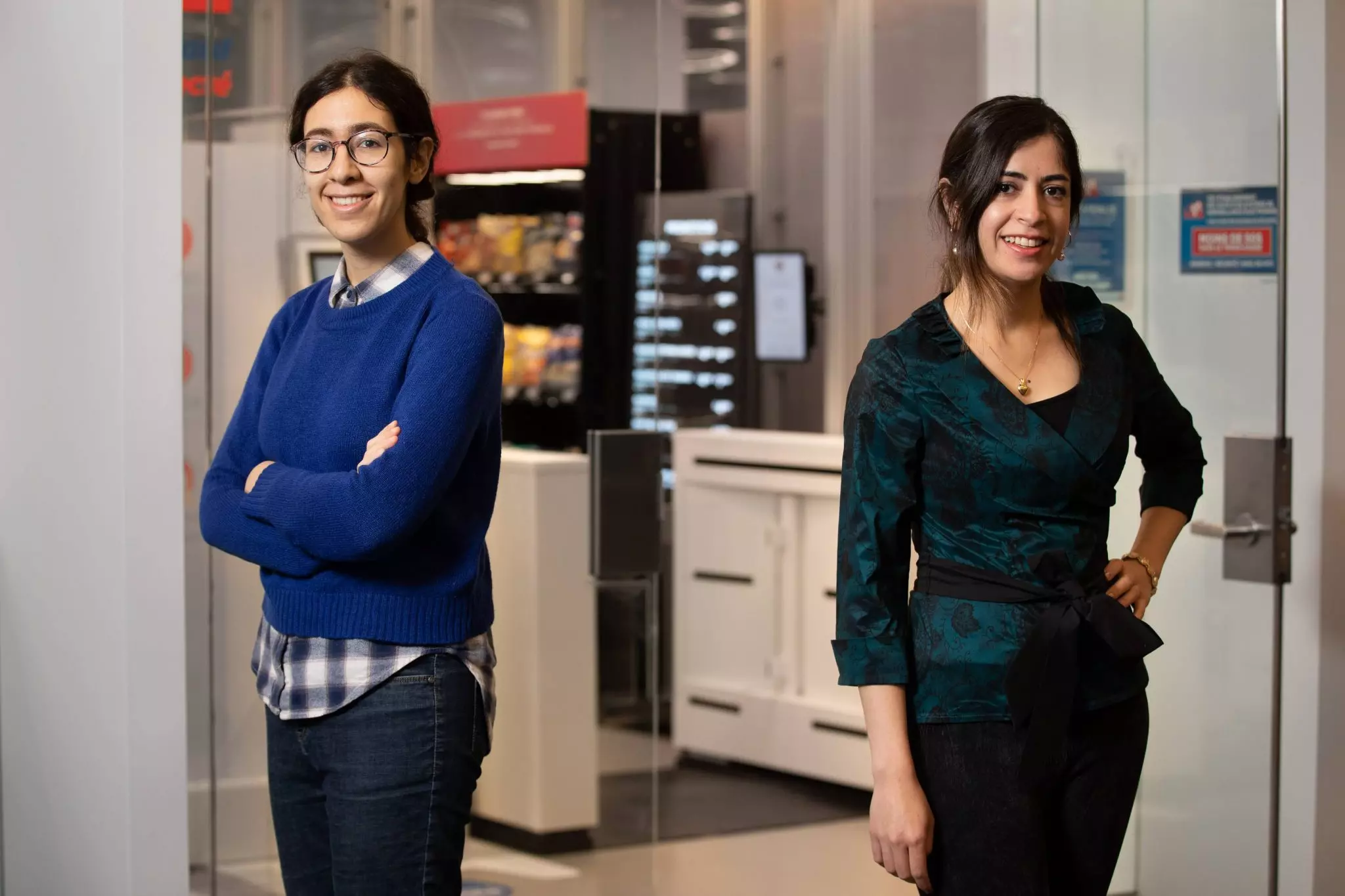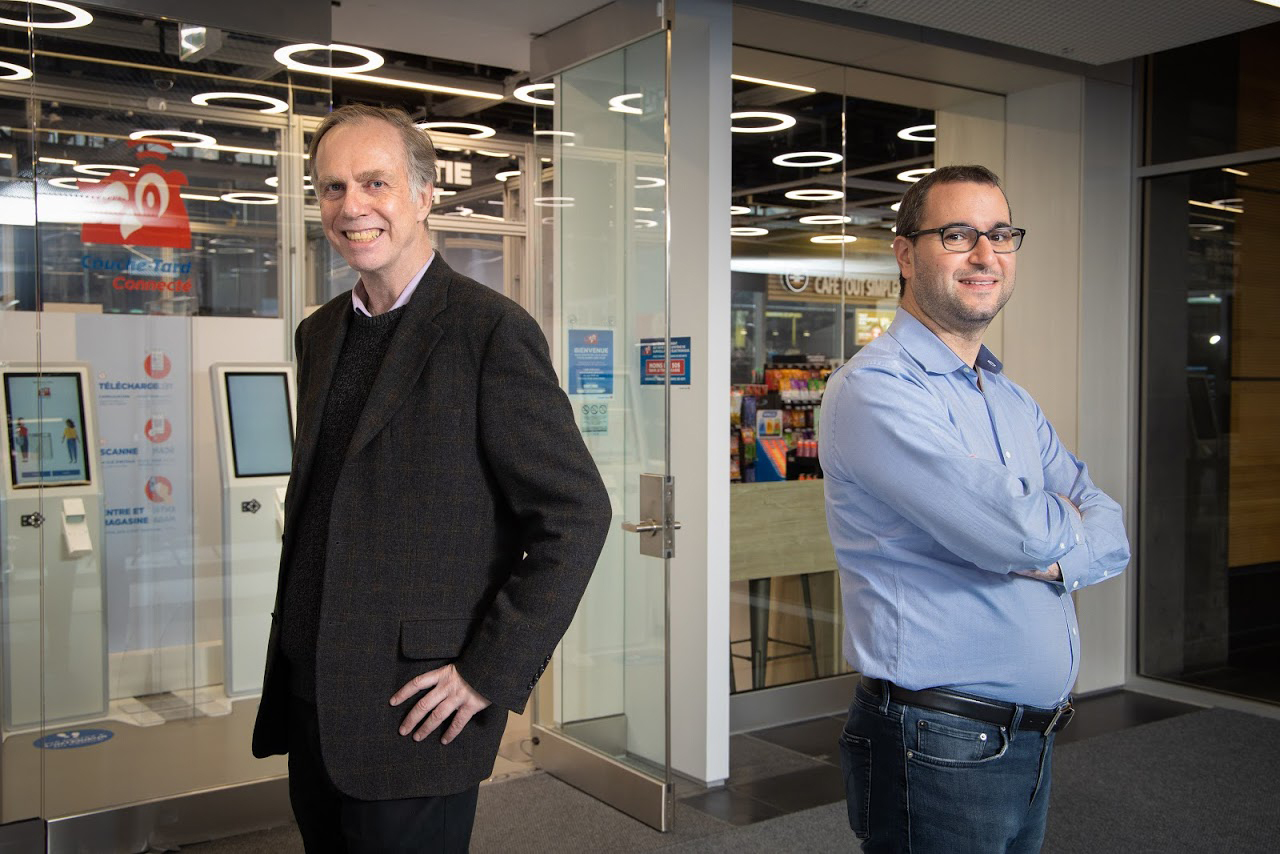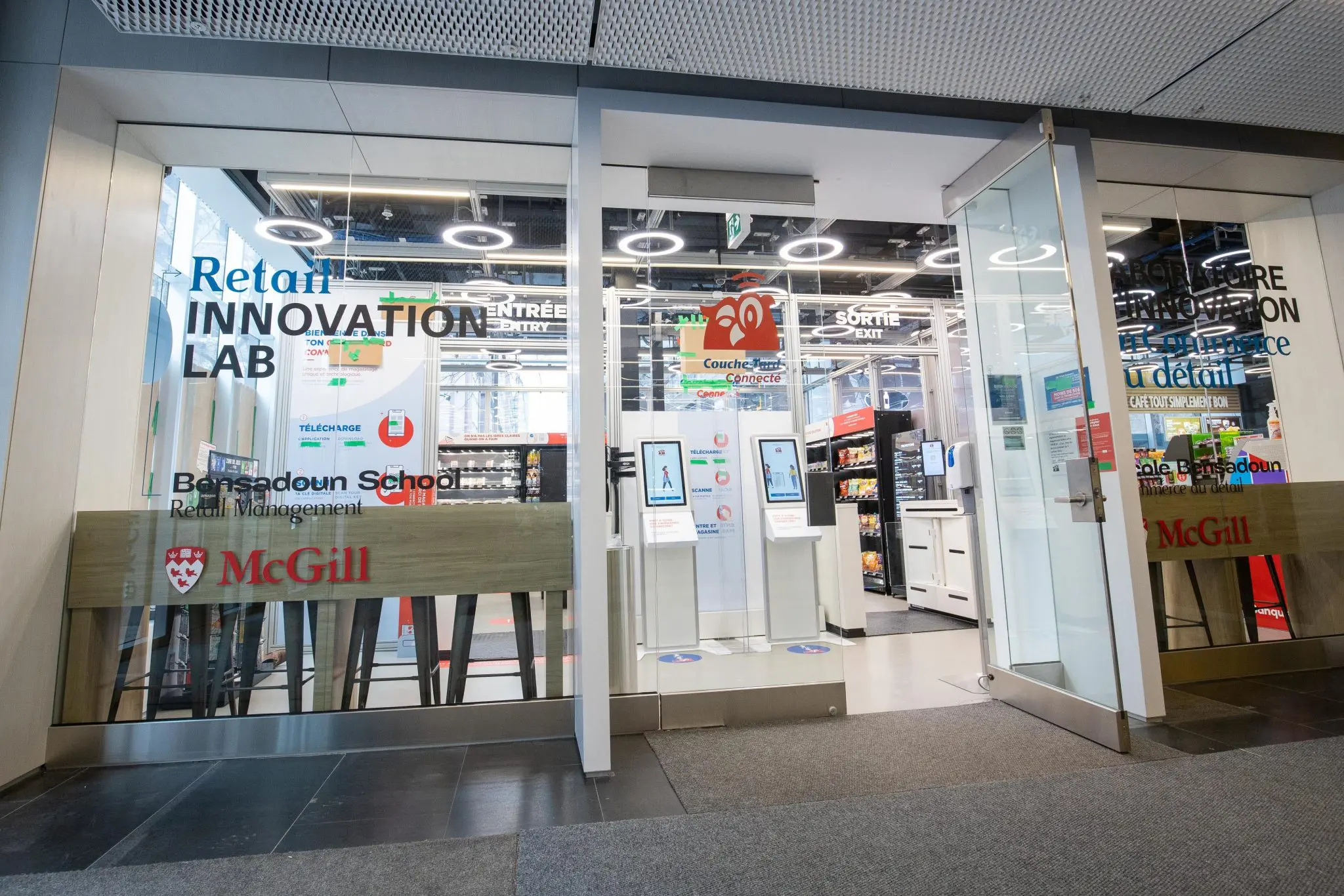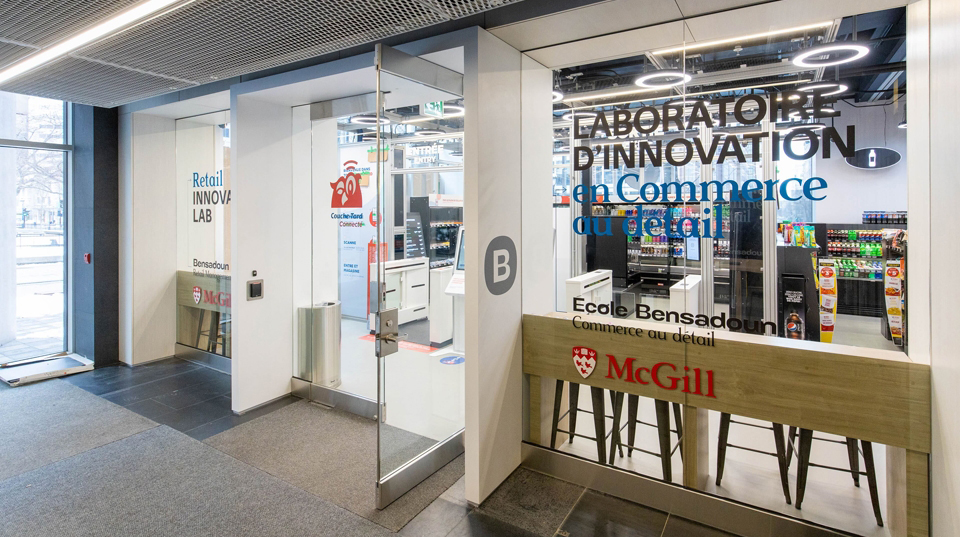The Bensadoun School of Retail Management (BSRM) at McGill University recently launched a retail innovation lab. This initiative is a collaboration between McGill University and Alimentation Couche-Tard Inc. (ACT). The lab is a convenience store as well as a living lab that operates on the McGill University campus and houses one of the first frictionless stores in Canada. In this context, frictionless shopping allows customers to skip the checkout process with the help of cameras.

The lab is led by two research directors at McGill University: Maxime Cohen (Associate Professor at the Desautels Faculty of Management), and James Clark (Professor in the Department of Electrical and Computer Engineering). The lab’s mission is to blend multidisciplinary research with cutting-edge technologies to investigate and practice responsible innovation for the future of retail. The data from the lab will offer several great research opportunities at the interface of retail and technology. Several research themes that will be investigated include frictionless operations and related supply chain issues, incentivizing customers for social good, and the tradeoff between personalization and privacy.

Just a Quick Note:
InnovationsOfTheWorld.com has partnered with Trade License Zone (TLZ) to support global innovators looking to expand internationally. Take advantage of the UAE’s Free Zones—enjoy streamlined setup, low corporate taxes, and a strategic gateway to the Middle East and beyond.
Get Your UAE Free Zone License Fast & Easy!Frictionless operations.
Frictionless technology is an important part of the future of the retail landscape. With such a technological disruption, several new research questions arise in areas like pricing, assortment, inventory and supply chain management, advertising, etc. that need to be investigated. Interestingly, this technology may offer a more compelling value proposition going forward, as it entails a measure of social distancing, which may be preferred in the post-pandemic era.
Incentivizing customers for social good.
The lab is the perfect medium to investigate the influence of different types of incentives on specific actions taken by shoppers. The first goal is to encourage customers to make healthier food choices. Later, other goals may also be considered (e.g., sustainable choices). Identifying the right influencing mechanism for the right customer at the right time could have a substantial impact on society, wellness, and healthcare government budgets. Different incentives including pricing, display location (i.e., where the products are located on the shelves), targeted messaging via the smartphone application, and other behavioural strategies (e.g., social contests) will be tested.

Personalization and privacy.
Using the anonymized data, the cognitive modeling of customer attention while shopping, and the role of distraction will be investigated. Distracting items will be detected and identified, and shoppers’ engagement /disengagement times will be measured. These measures will be used to infer attentional biases and monitor whether incentives modulate these biases. The attention behaviour of shoppers will also be modeled as a key indicator of friction. The cognitive attention models will be personalized, but in ways that maintain anonymity. Augmented reality technology will be used to reduce friction, making it easier for shoppers to find what they are looking for, as well as to provide another channel for incentivization.
, 

In this context, it is relevant to point out that the retail innovation lab brings to life the three overarching goals of BSRM in one unique infrastructure: (1) to lead action-oriented, integrative research related to all facets of the retail industry that draws from the multi-disciplinary expertise of McGill University and Montreal, while also building on collaborations between academia, industry, and policy-makers; (2) to be the preeminent institution for the education and development of the next generation of leaders in the retail sector; and (3) to balance the dual objectives of social conscience and business success. Going forward, the retail innovation lab will help BSRM to be the engine of innovation for the retail industry and a source of talent for its future success.


Simultaneously, the lab is also well aligned with ACT’s vision to become the world’s preferred destination for convenience and fuel through customer-focused innovation. The unique research agreement with McGill University will help ACT to enable new customer and employee experiences in close collaboration with leading researchers. The lab is a core platform in ACT’s innovation portfolio and an important building block in its mission to make its customers’ lives a little easier every day. The pace of change has never been faster in retail, and this unique collaboration will help both McGill University and Alimentation Couche-Tard Inc. to shape the future.















